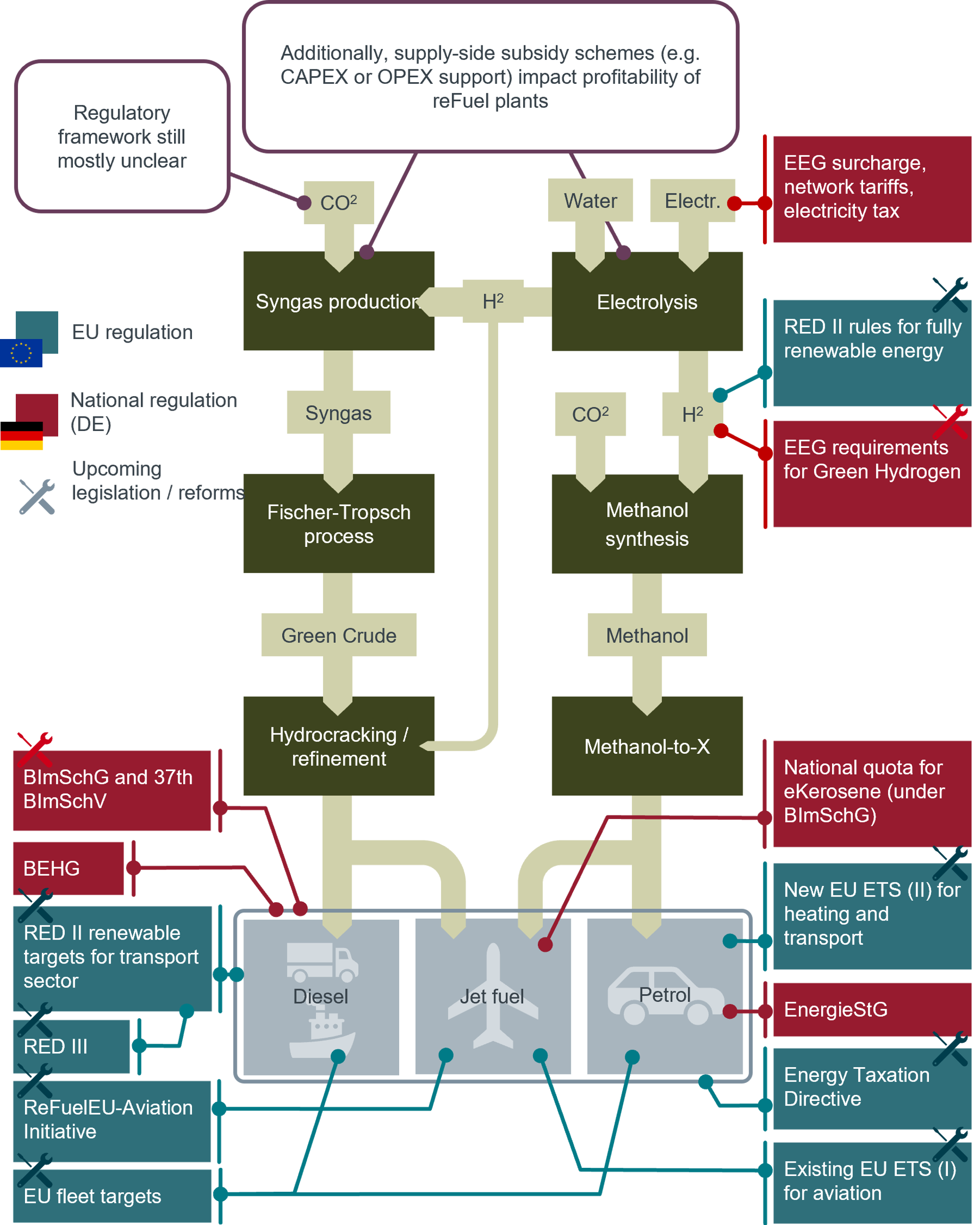Fuels from regenerative energy sources (“renewable fuels” – refuels) could be a decisive factor when it comes to decreasing GHG emissions in the transport sector and may contribute considerably to reaching climate protection goals. Refuels can be generated based on (green) electricity (so-called “efuels”) or based on biogenic substances (bio fuels).
Understanding the regulatory framework
To facilitate the market ramp-up of refuels, business models are needed that enable the economic operation of refuel plants over their lifetime. The regulatory framework defined at EU and national level for the production and use of green fuels and energy is a key driver of economic viability (see figure below). This impacts both costs and revenues of refuels in various ways:
- On the cost side, the regulatory framework affects, among other things, the level of electricity procurement costs for hydrogen electrolysis, which is required for the production of efuels. Some of the key influencing factors in this respect are the EU Commission's delegated act on the definition of criteria for the production of green hydrogen (so-called "green electricity criteria"), or regulations on levies and charges imposed on green electricity.
- On the revenue side, the regulatory framework substantially impacts the level of prices that can be achieved with green fuels. In Germany, for example, green fuels are already being promoted: Traders are obliged to reduce greenhouse gas emissions from fuels, leading to biofuels being blended with fossil fuels. The design of such obligation systems and other support schemes will be crucial for the future market ramp-up of refuels.
Figure 1: Regulatory environment for refuels

Source: Frontier Economics
Exploring regulatory frameworks and business models
Supporting the market ramp-up of refuels, the Ministry of Transport of Baden-Württemberg (VMBW) has commissioned Frontier Economics to investigate the regulatory framework as well as possible business models for fuels produced on the basis of green fuels.
Here are some key findings from our study:
- A number of the draft regulations proposed as part of the European Commission's Fit-for-55 package would improve the economic viability of electricity-based renewable fuels in the transport sector, for example:
- Proposals for a sub-quota for electricity-based renewable transport fuels and the introduction of a mandatory eKerosene quota, both of which would clearly define the markets for these fuels.
- The plan for a different taxation of fossil and sustainable fuels and plans to end energy tax exemptions for paraffin would further reduce the coverage gap of green fuels.
- The EU emissions pricing reform and plans to include the shipping sector to the EU ETS I, as well as expanding the EU ETS II to the heat and road transport sectors.
- In addition, a robust regulatory environment with a long-term perspective will be necessary to drive the market ramp-up. The sooner reform proposals are put into practice and implemented, preferably with a longer-term perspective, the better the basis for investment decisions.
Frontier Economics regularly advises on business case analyses regarding renewable energies.
For further information please contact media@frontier-economics.com or call +44 (0) 20 7031 7000.











